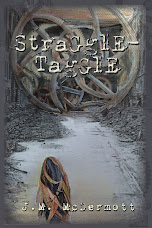the mythology of the bookstore versus seo
There's this company called "Hubpages" that I encountered in my travels that is not a great company, and floods search engines with a lot of relatively amateur content for link bait to monetize eyeballs. There's ads all over the page. There's links to eBay and Amazon that are monetized affiliate links.
I was reminded of Hubpages when I encountered a bookstore in my travels that looked suspiciously like Hubpages or About.com or any other one of the countless SEO sites that hack out a few dollars on the web by flooding search engines with content to generate pagehits.
Amazon has ads, too. Quick, go to their site and check out this awesome remote control helicopter. Syma S107/S107G R/C Helicopter - Blue Scroll down below the product description and what do you see? External ads. Amazon, the larges bookseller in the world, monetizes eyeballs, and sells ads on product pages. (It just doesn't seem to do it for books. Yet.)
Bookstores tend to only advertise their own products. How many bookstores sell advertising space on their walls to lead out to other companies? Plenty indie shops will have business cards of other local businesses, maybe a billboard, but how many charge for advertising space on the shelves themselves? How many page hits does Amazon get compared to a site like eHow?
Now, with sites more like eHow or About or any other of the weird and arcane SEO sites out there, if they set up eCommerce to sell directly from their site, and still plaster the page with ads, who profits from the ads? It's not authors of books. I know that for a fact. Whoever arranges with the site might profit from the ads, as part of normal negotiations about availability and titles in locations that try to compete with Amazon, perhaps, in the same way anyone can set up a Hubpage account and split the ad revenue.
We negotiate our contracts and negotiate our contracts...
The mythology of the bookstore experience is going to get farther behind us, when bookstores more resemble About.com and Hubpages than they do the lovely independent booksellers with physical stores we can browse. Thinking about eBooks as if they are just books in a different format damages our ability as web publishers to reach into the ad revenue that is a major source of income on the web.
Imagine the ad revenue lost on the retail splash page for Stephen King's latest novel, at the largest bookstore in the world, a website with ads on it already to other books, and a website that occasionally does offer external ads. Imagine the trickling coins for all the lesser authors - all us vast millions of authors - coalescing into a single pool of revenue for a single site. Do any agents demand a cut of the ad revenue, at eBook sites that offer to split the revenue with publishers? I've never even heard of this, but it's an idea that's sort of already here, on the web, and it's a sign that maybe things are changing fast and even people who try to stay on top of the changes are still living in the mythology of the bookstore, because it didn't occur to me to think about this until I woke up this morning from bad dreams about the people I have actually met who have been in charge of large companies.
We're thinking about all of these websites, and our relationships with them as if we are still operating bookstore businesses. We do not think of the eBook quite enough as if it were true that all publishing is web publishing, now, and that all books are at least a part of the SEO that dominates the internet. So, someone visits Stephen King's latest book at Amazon.com, and clicks through the recommended links. Does Stephen King's publisher generate a click-through bonus if someone buys a book from the page they visit after finding Stephen King's? Any web-publisher worth his salt would be thinking along these lines, because that's exactly how affiliate ads work all over the web right now: click through my page and buy the next thing and I get paid for drawing you there.
And, one area where a publisher has an opportunity to prove value to an author in the digital age, I might add, is to provide a cut of affiliate advertising money. On the eBook sites that split the ad revenue (which they should if they want to plaster their book sale pages with advertisements when the book is the actual draw), a percentage going back to the author would be a thing a publisher could do to prove their worth in the digital age. Amazon does many things for indie authors, but they do not offer to split ad revenue off the eBook listing's web page.
Books are vessels that carry ideas. Advertisements are profiting off the relationship between ideas, and greasing those lines of contact. They're not evil, and even if they were they're here to stay, and who gets a cut of the ad revenue on the webpage for your book?
[ETA: Naturally this is also an area where Amazon, already available for affiliation, can increase loyalty to their website, as could any other on-line retailer of eBooks, and they already have all that lovely payment information on file, too.]













